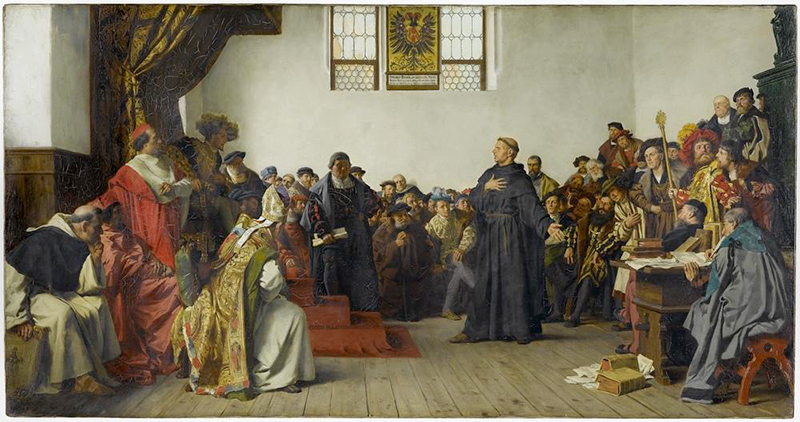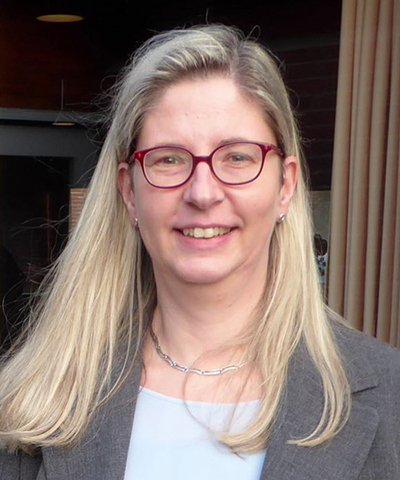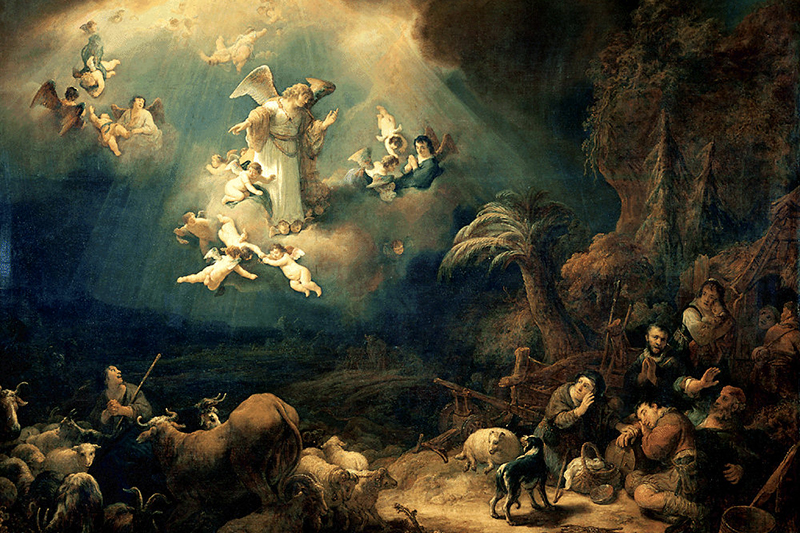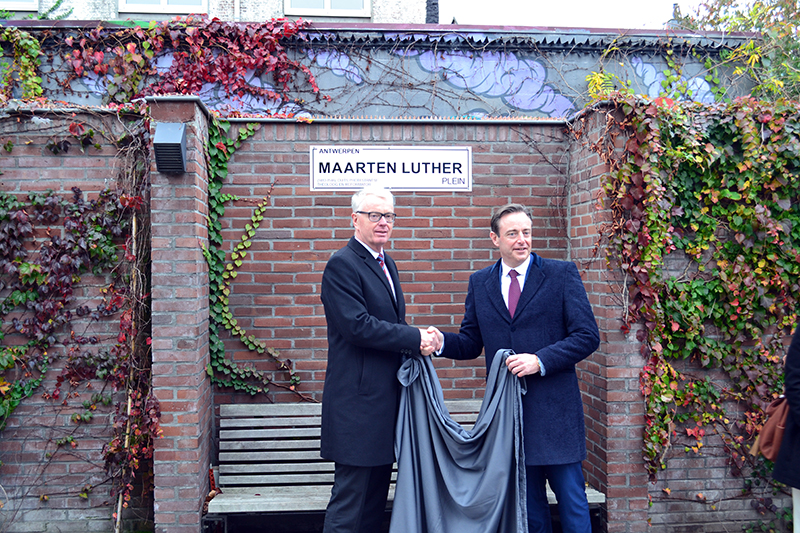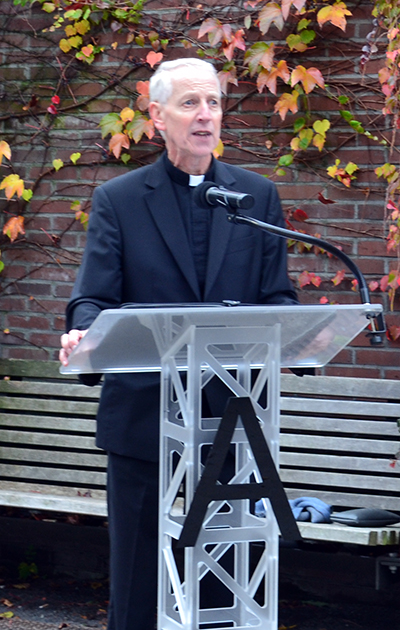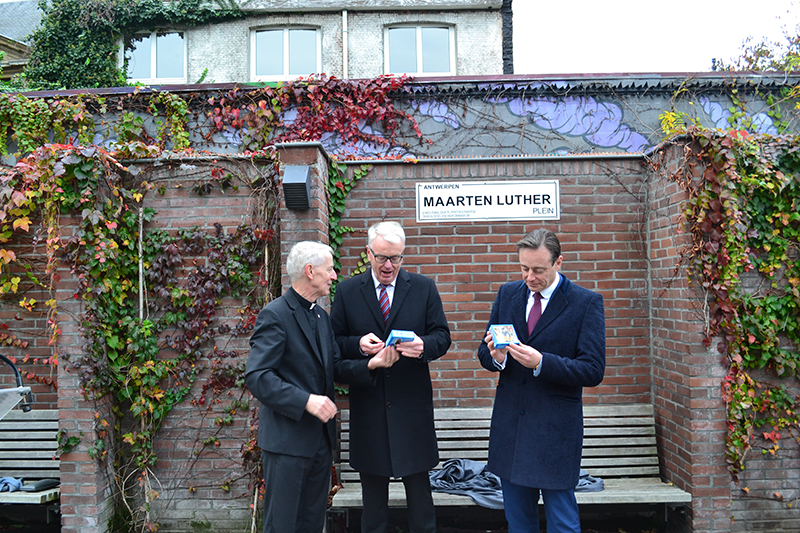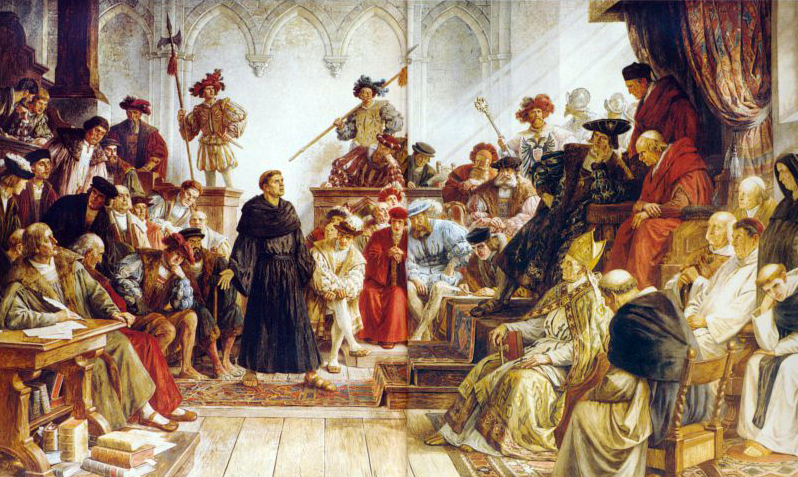
Martin Luther at the Diet of Worms (Mural by Hermann Wislicenus, 1880).
WORLD – April 18, 2021 marked the 500th anniversary of Martin Luther’s testimony before the Diet of Worms, with Lutherans around the world observing the event in different ways.
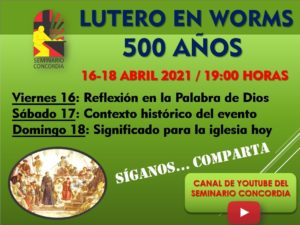 The Evangelical Lutheran Church of Argentina (Iglesia Evangelical Luterana Argentina – IELA), for example, held an online conference April 16-18, 2021 to mark the event, featuring three lectures by faculty members of the IELA’s seminary in Buenos Aires. Professor Antonio R. Schimpf spoke on reflection on the Word of God in relation to the anniversary, Professor José A. Pfafenzeller discussed the historical context of the Diet of Worms, and Professor Sergio R. Schelske addressed the event’s continued significance for the church today.
The Evangelical Lutheran Church of Argentina (Iglesia Evangelical Luterana Argentina – IELA), for example, held an online conference April 16-18, 2021 to mark the event, featuring three lectures by faculty members of the IELA’s seminary in Buenos Aires. Professor Antonio R. Schimpf spoke on reflection on the Word of God in relation to the anniversary, Professor José A. Pfafenzeller discussed the historical context of the Diet of Worms, and Professor Sergio R. Schelske addressed the event’s continued significance for the church today.
These lectures (in Spanish) are available to watch online at the IELA’s website here.
In the United States, meanwhile, The Lutheran Church—Missouri Synod (LCMS) officially designated April 18 “Here I Stand Sunday.” The LCMS made a number of materials available to mark the date on its website, including a Bible Study and bulletin insert.
The church also released several videos highlighting the anniversary. LCMS President Matthew Harrison, for example, highlighted how the faith which inspired Martin Luther at the Diet of Worms also led in time to the founding of the LCMS, which will celebrate its 175th anniversary in 2022. “It’s quite impossible to imagine the existence of the Missouri Synod or any Lutheran churches in the world without the events of this week 500 years ago,” he explained. “500 years later the church is increasingly called to confess before the world and even political authorities. We stand firm with the confession of Luther. We believe in the Scriptures, and our conscience is bound to those Scriptures, which teach us the free forgiveness of Christ in His cross and resurrection.”
———————

